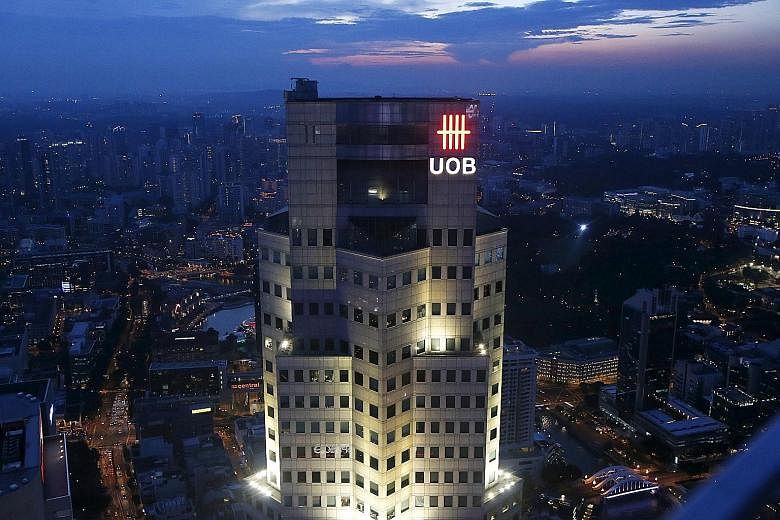The sell-down on the Singapore bourse has coincided with a sharp spike in short-selling activity in some component stocks of the benchmark Straits Times Index.
Data from financial information provider Markit shows that there was a dramatic jump in the percentage of shares out on loan for United Overseas Bank, Keppel Corp and Noble Group in the past two months.
The sell-off has sent the STI plunging 400 points, or 12.5 per cent, since August to its lowest levels in three years.
For traders, tracking the borrowing of shares is regarded as a reliable proxy for "short" positions as a person who wants to "short-sell" a stock in the hope of buying it back cheaper must first borrow the shares via the securities lending market in order to sell them.
In the case of UOB, the percentage of stock loaned out stood at 0.134 per cent of its outstanding shares as at end-July. It increased to 0.205 per cent of its outstanding shares after UOB reported an unexpected 5.7 per cent fall in second-quarter profit to $762 million.

The percentage of shares out on loan then continued to climb to 0.624 per cent of UOB's outstanding shares - or 4.6 times of what was borrowed just two months ago - as a spate of concerns such as China's move to devalue the yuan in August hit the stock market.
For Keppel Corp, the percentage of shares out on loan more than doubled from 1.72 per cent of its outstanding capital as at the end of July to about 3.745 per cent as of Tuesday as it succumbed to concerns over falling oil prices and souring sentiment on Asian markets.
For Noble Group, which has been trying to fend off attacks by short-sellers since February when a blogger known as Iceberg Research raised questions over its accounting practices, the latest headwinds in the market saw a further spike in the percentage of its shares out on loan. This rose from 9.77 per cent of its outstanding shares as at end-July to 14.55 per cent as of Tuesday.
Analysts are not expecting the short-selling to abate. If anything, they expect more short-selling as sentiment sours further.
Nomura analysts noted in a recent report that concerns had been raised by US investors about the potential downside for Asean banks if loans deteriorated and credit costs rose. The report also noted that hedge funds believe there is room to short bank stocks despite the recent share price falls as the market did not appreciate the damage from the economic slowdown. In particular, it said while Singapore banks were viewed as "strong", they were also regarded as excellent candidates for shorting because they represent the service hub for the region.
As for rigbuilder Keppel, the muted demand for rigs and the possibility of contract cancellations are likely to be a drag on its share price.
In Noble's case, the worry may shift from its accounting practices to how the group plans to reduce the debt on its balance sheets, given the concerns over a possible US interest rate hike.


